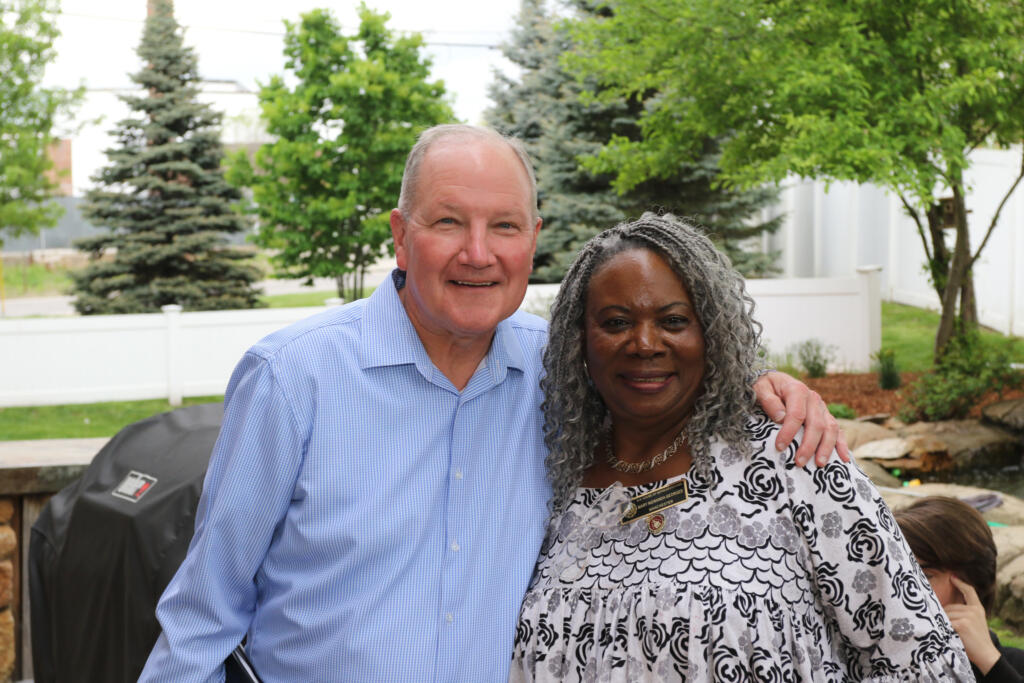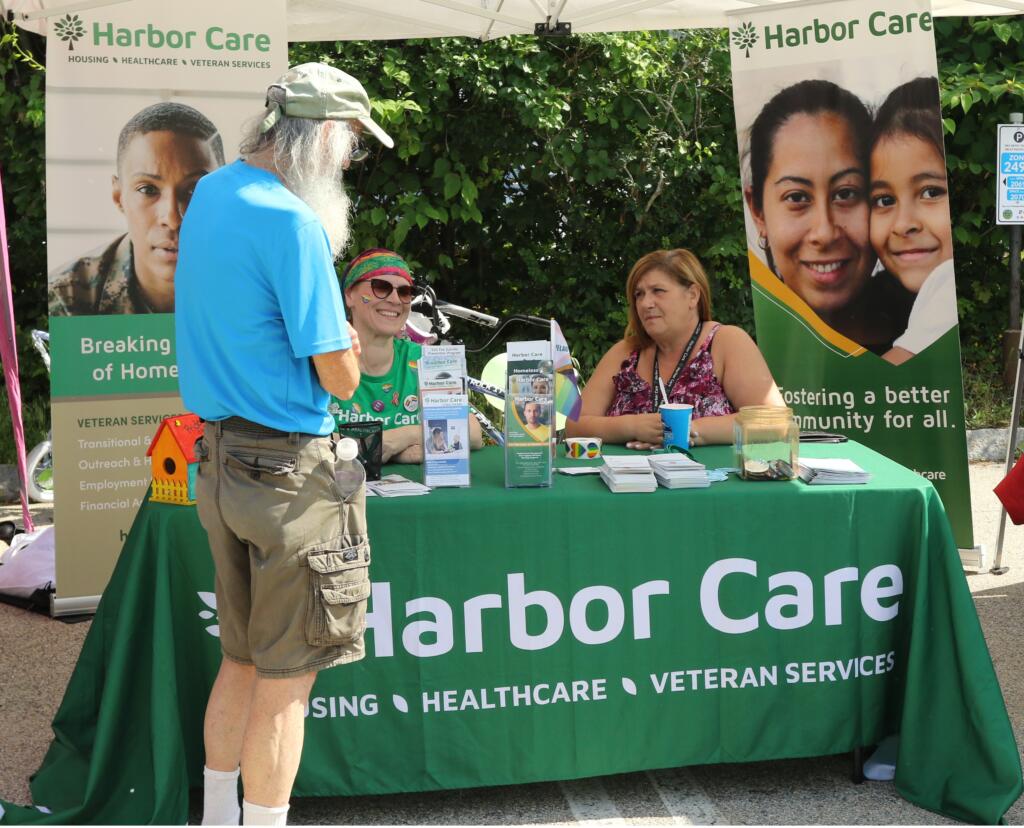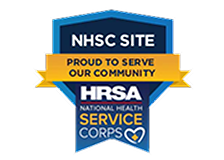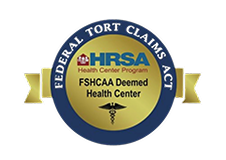“The Patients Come First”: A Day in the Life of Pamela Urick, NP
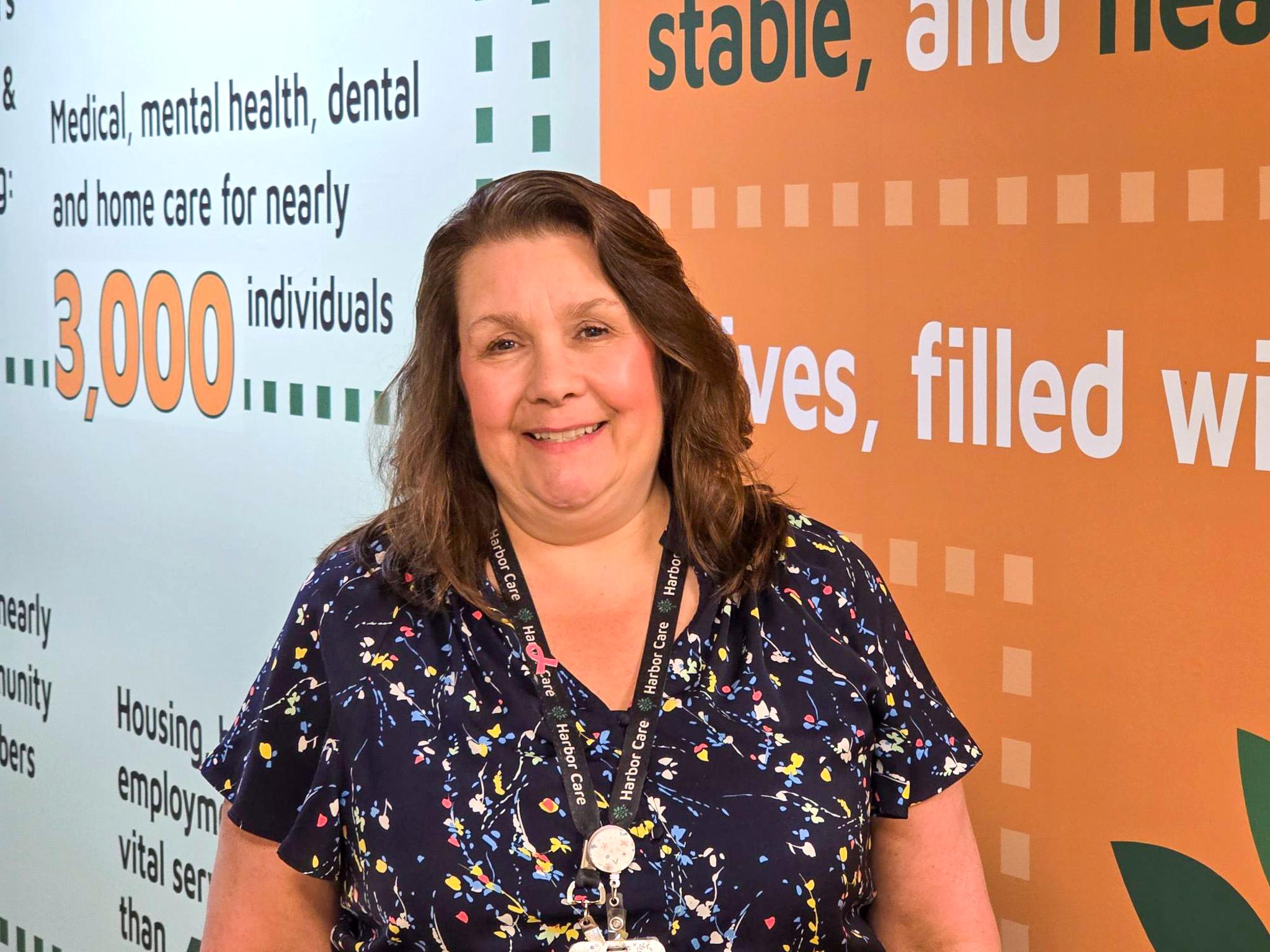
To make an appointment, call 603-821-7788.
Some mornings, Pamela Urick is already reviewing charts before the clinic doors open. She moves through her day with quiet focus—prepared, thoughtful, and doing her best to stay ahead of a schedule that rarely goes as planned.
“It’s a lot,” she admits. “But this is what I was meant to do. And it’s where I’m meant to be.”
Pam has been a nurse practitioner at Harbor Care Health and Wellness Center for two years, though her path in care began much earlier. As a child, she wore a handmade nurse’s costume sewn by her grandmother. She still remembers how it made her feel: part responsibility, part calling. She never wanted to be anything else.
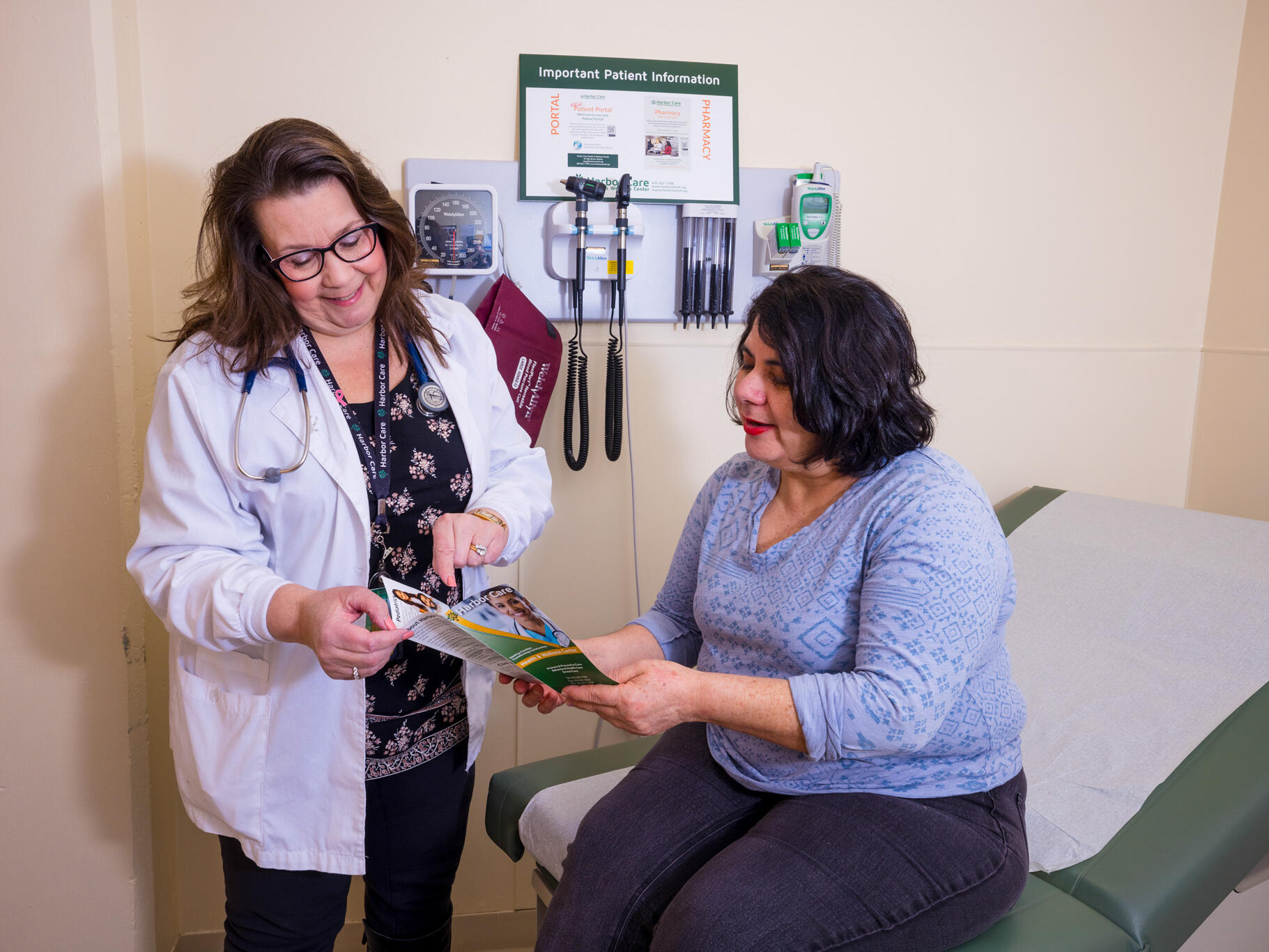
Her career spans maternity, pediatrics, and private practice. She spent 13 years at The Elliott Hospital and another nine at Dartmouth Hitchcock Clinic before transitioning to community health. Today, she is one of three nurse practitioners on staff at Harbor Care, providing care across the lifespan and helping meet the complex needs of a diverse patient population.
“I do a little bit of everything,” she explains. “Preventive care, chronic condition management, acute concerns, education. You need a wide lens in primary care, because one condition almost always affects another.”
Pam has a special place in her heart for women and children. She lights up when talking about newborn visits—teaching parents how to care for baby skin, support breastfeeding, or avoid overfeeding. “We’ve had a few newborns come in recently,” she says. “That’s my favorite. I love the teaching part.”
Working in community health means adapting to real-world complexities. “You can’t always assume someone has a ride or can afford a prescription,” she says. “So you listen. You build trust. You find a way forward together.”
Her patients notice. One wrote on Google, “Pam is so nice! She listens and doesn’t make me feel stupid.” Another said, “I always feel heard, never judged.” Pam wouldn’t quote those reviews herself—but they reflect the way she practices: with clarity, respect, and empathy.
There are tough moments in any provider’s day—conversations where she has to hold a firm line or explain difficult truths. But Pam sees these as opportunities to empower. “Sometimes you’re the first person who’s taken the time to really explain what’s going on,” she says. “When someone hears you—really hears you—that’s when the work feels meaningful.”
It’s those moments that drive her. Because of the diabetic patient who got their numbers down. Because of the single mom who left an abusive home and walked into the clinic ready to start fresh. Because of the veterans who remind her of her own family.
“I like that we’re doing something meaningful here,” she says. “We’re helping people who don’t always get help.”


